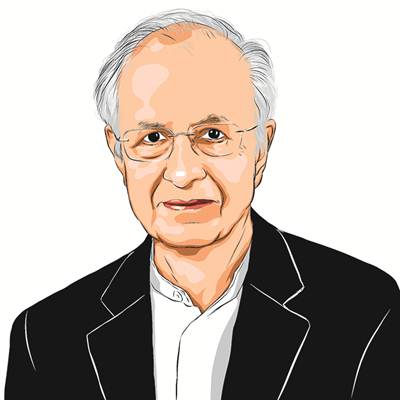Opinion The art of getting things done
It is not just private sector that wants reforms in government systems
It is not just private sector that wants reforms in government systems
China and India have been running neck-to neck in the timing of their Five Year Plans: both into their twelfth plans now. However,China has run far ahead in outcomes,with an economy now almost three times the size of Indias and with hundreds of millions more citizens out of poverty. Bold reforms have enabled Chinas success. There was vicious political opposition to economic reforms in China,as Ezra Vogel recounts in his masterful biography,Deng Xiaoping and the Transformation of China. There is dismay that Indias reforms process has got bogged down by political infighting. There are lessons for Indias leaders in Dengs story.
The first set of reforms Deng undertook,in 1975,were in the railways,which were in a state of disorder,and in coal,with stocks piling up near coal mines with no incentive to mine more. Deng knew that,unless transportation and energy problems were solved,the economy would not move. The root causes of these problems were factionalism within organisations,political interference,and a culture indifferent to performance. Therefore Deng applied himself to improve the performance of these sectors with organisational and management interventions. He addressed the railway organisations directly: We need to find people who arent afraid of being knocked down,who dare to accept responsibility. We want in the leadership teams those who dare to struggle. There was political opposition to Deng from people close to Mao whose support Deng could not be certain of. But Deng persevered. From railways and coal,he moved to sorting out the management of other sectors before moving on,many years later,to reforms of commerce and finance.
Deng was not an economist. But he created an economic miracle. He mastered the art of getting things done. Economists are exhorting the Indian government to find the political will for reforms. India,unlike China,moved to reforms that opened the economy to markets before strengthening the foundations of the economy with reforms of public health,education and administration. The weak foundations are now curbing the pace of economic growth. In fact,railways and coal have become bottle-necks in Indias growth story,as they were for China in 1975. We must break through. Excuses of our culture,our chalta hai attitude,and the propensity of Indians to argue and not work together,are not tenable. How come those same Indian genes seem to change when Indians are abroad,in other organisations,in which they are recognised for their outstanding performance? Also,Deng did not change Chinese genes: he reformed the organisations the Chinese worked in.
India has an overdue administrative reforms agenda. The Second Administrative Reforms Commission (ARC) has prepared 15 reports covering many facets of administration and governance,from judicial and police reforms to reforms of civil services and government structures. The ARC has consulted extensively. It has examined Indias needs and studied how other countries have improved governance of public services. Almost all its recommendations have been approved by groups of ministers (GoM). Thus the ARC has loaded the gun,and pointed it at the target. The political will required now is to pull the trigger.
The creation of agency structures to improve delivery of services and building of assets referred to by The Indian Express (Rein in the bureaucracy if you want us to deliver,perform: private sector stars in govt let PM know,March 30) is recommended in the commissions 13th report,already approved by a GoM. The private sector executives The Indian Express spoke to,including this writer,are presently working within unreformed structures of government,and therefore can validate the problems pointed out by the ARC. With their management experience,they also confirm that the ARCs recommendations would be good solutions. They have endorsed the urgency of institutional reforms,without which the country cannot sustain its economic growth. It is not only the private business sector that is advocating for reform of government structures and systems. Public sector corporations are pleading for it too. Also citizens at large and civil society organisations are clamouring for governance reforms. Even good bureaucrats are entreating for change in the system in which they feel trapped. They too want to produce results for the country. But they find themselves stuck in silos and tied in their own red tape.
India is unlikely to become the large economy that economists seem to extrapolate from economic numbers only. Large buildings cannot be built upon weak foundations. Indias political configuration is a kaleidoscope of political parties. Each electoral turn can throw up another pattern. Consensus is not easy amongst competitors with different political ideologies. Thus economic reforms are stalled such as FDI in retail,and fuel subsidies. Whereas the administrative and management reforms proposed by the ARC are likely to receive support across the political spectrum. Such reforms that strengthen institutions will enable any government to produce results for the people. They will have an impact which will be large,widespread and enduring too. Therefore whoever leads and implements these reforms will leave an enduring legacy.
The writer is a member of the Planning Commission
express@expressindia.com


